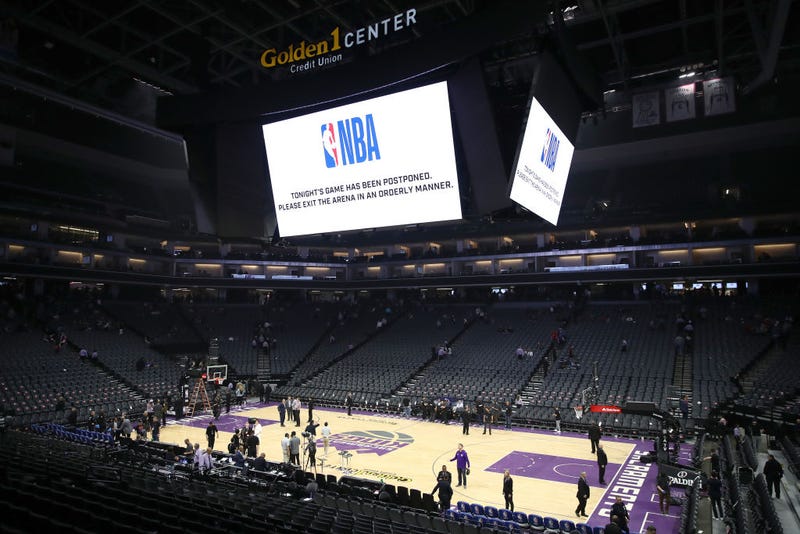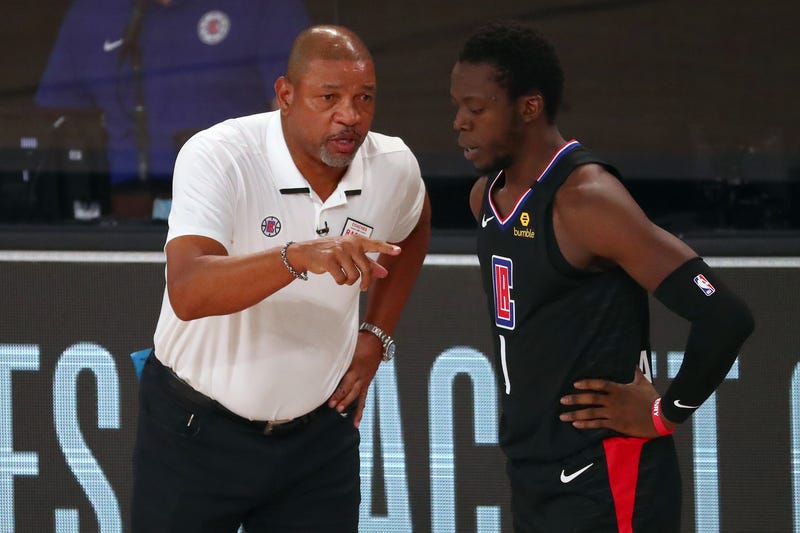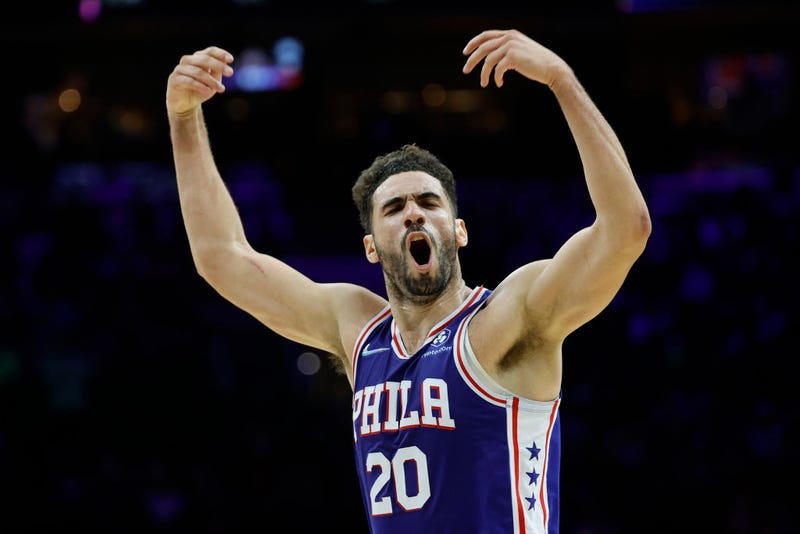
PHILADELPHIA (KYW Newsradio) — It’s not just basketball fans who will never forget March 11, 2020. An entire society suddenly understood a lot about what COVID-19 was going to mean for us all.
After Utah Jazz center Rudy Gobert tested positive for COVID-19 in Oklahoma City, the NBA suspended the 2019-20 season. Countless other industries, schools and other aspects of our daily life followed the NBA's path.
After major uncertainty — concern about how safe it was to hold live sporting events, or even everyday activities — Gobert's positive test broke the dam.
Predicting something yet to come
Philadelphia 76ers head coach Doc Rivers was coaching the Los Angeles Clippers at the time. They played at the Golden State Warriors the night before the pause.

San Francisco was already on the verge of playing games without fans, even though they were still allowed in for that specific night.
“I remember us playing Golden State the night before, and the arena was empty, the streets were empty and I thought, something bad was gonna happen. I didn't know what it was,” Rivers recalled.
“For the league, [the pause] was just strange. Walking on the beach in April was strange every day.”
Related podcast: The (mostly) end of Philadelphia's mask mandate:
The moment everything stopped
The Sixers were set to host the Detroit Pistons at 7 p.m. on March 11. Locker room access was no longer allowed. There had to be more distance between the media and the press conference table.
The Wells Fargo Center was still allowed to be at full capacity, but going to the game certainly wasn't recommended.
SportsRadio WIP producer and Sixers season ticketholder Mike Angelina was in attendance that night.
“I remember by the time it came to like 5 p.m., 5:30 p.m., 6 p.m., getting ready to go to the game, I was pretty confident it would be my last Sixers game in a while. Last game for anyone in a while,” he said.
The Sixers got a much-needed win, beating the Pistons 124-106. The game ended shortly before 9:30 p.m.
Around that time, ESPN's Adrian Wojnarowski and The Athletic's Shams Charania tweeted the season was suspended. A joint press conference from Sixers General Manager Elton Brand and then-head coach Brett Brown followed.
It was anything but normal — just like the chant Angelina heard as he was leaving.
“I remember on the way out, too, a 'Trust the Process' chant broke out,” he said. “It's like, ‘wow,’ because it doesn't normally happen in a March game. It's almost like people knew this is the last time that a game is gonna happen.”
At that point, Angelina didn't know the season was going to pause.
Meanwhile, alarming news was breaking in Oklahoma City. The Utah Jazz were set to take on the Oklahoma City Thunder, but the game was called right before it was getting ready to tip because Jazz center Rudy Gobert tested positive.
Sixers forward Georges Niang played for the Jazz at the time.
“I just remember it was almost like the Secret Service ran on the court — a bunch of guys in suits before the game, and we went to the locker room. It's never happened before,” he said.
“I just remember being in the locker room, and it was six hours. I know we got in trouble for this, but we got 40 COVID tests and people with hazmat suits coming in. I just remember being there, two masks and a glove.”

Niang reflected on how far society has come in two years since the night everything changed.
“We're just finally not wearing masks now, and it's kind of crazy because we all thought, ‘Two weeks and the season would be back,’ and then Adam Silver was like, ‘Oh a month’. And now it's two years later, and we've completed three seasons. So, it's crazy to [see] where it all came,” he said.
“That was a scary night, and I'm glad that kind of stuff is hopefully in the rearview mirror.”
There was about a four-month stretch, from mid-March into July, where there were almost no live sports. The NBA returned during the summer in the “bubble” in Orlando, with Gobert scoring the first points of the re-started season.
It wasn't until well into 2021 that arenas were back at full capacity. And it wasn't until recently that mask and vaccination requirements were dropped.
The resiliency of the country
Two years later, it's no secret that people don't enjoy talking about COVID-19. People are tired of it.
More than 6 million people who contracted COVID-19 have died, according to the World Health Organization. Everyday routines have turned upside down. Time is precious, and people have not been able to spend time together.
Who would have ever thought sporting venues would be forced to be empty? The past two years have offered perspective.
“Life is very delicate, especially with everything that's happened in the last two years,” said Niang. “When I came to the NBA, I would have never expected to have the season pause for anything, or to be playing in a bubble with no fans. So, definitely don't take anything for granted.”
“I never want [a massive pandemic-caused pause] to happen again, for any reason — health or just anything,” added Angelina.
“It tested every single person, not just the NBA,” Rivers noted. “People lost jobs. Businesses went out of business. People are now working again. New businesses are opening. Restaurants close. New restaurants are opening. There's so much happening. I moved to Philadelphia last year, and the city [was] closed, so I'm still learning the city.
“We’re still going through it, kind of. We're coming out of it, but it just shows how resilient, not just Americans, just resilient people are.”
Related podcast: The effect of COVID-19 on mental health, particularly among Black Americans:

